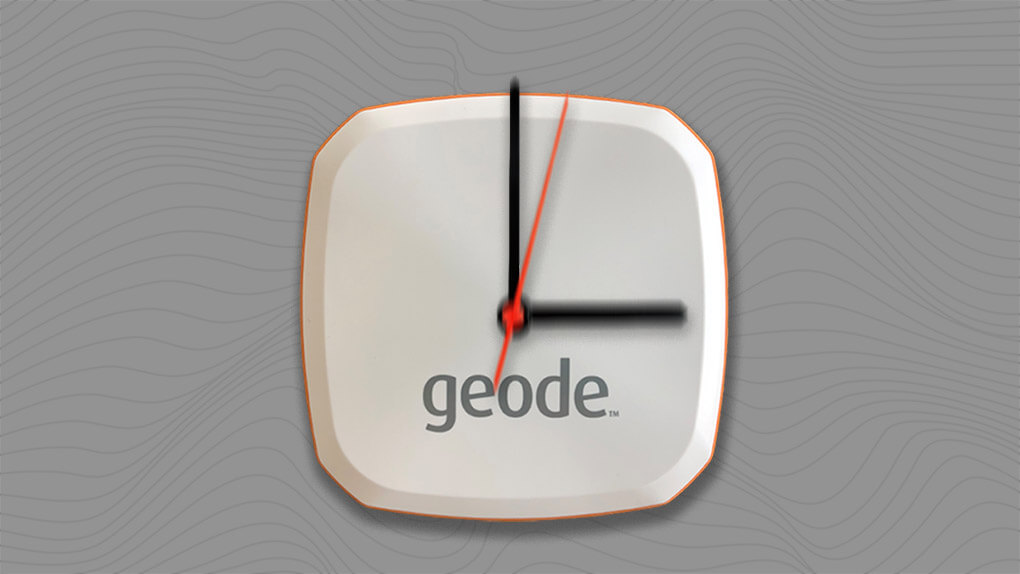
It is that time again.
As it does every 19.7 years, the world standard for positioning, navigation, and time – the Global Positioning System, better known as GPS – is going to reset its clock. On April 6, for the second time ever, GPS time will roll over its clock to zero before it starts its upward count to 1,023.
The every-two-decade reset called GPS Week Rollover occurs every 1,024 weeks because of the unique way that GPS counts time. Specifically, GPS counts time in binary code expressed in 10 bits of data. GPS counts time in weekly increments and the 10-bit code can display the numbers zero through 1,023, amounting to a necessary clock reset every 1,024 weeks. The last GPS rollover was Aug. 21, 1999 – 19.7 years after the start of GPS time on Jan. 6, 1980.
GPS Week Rollover is a product of a GPS system that the U.S. military designed to prioritize critical information in each GPS message. To do that, GPS squished time into a tiny 10-bit piece of data that will roll over again in 19.7 years.
How does the GPS Week Rollover effect GPS receivers?
Without a little planning from manufacturers, most electronics that utilize GPS would all flash the same date on April 7: Jan. 7, 1980.
Luckily, they did do some planning.
Some manufacturers added firmware code that converted the traditional 10-bit time code that GPS utilizes into a larger number like 12-bit code that would only roll over every 78 years. Of course, 78 years will cover the lifespan of most receivers today. Other manufacturers use a system that rolls over 20 years after the device is operational – not 20 years after the last GPS rollover.
GPS receivers utilize these time codes from GPS satellites to determine their position on earth and share data and time in various other messages.
How does the GPS Week Rollover affect Juniper Systems products?
Juniper Systems has communicated with the manufacturers of its GPS receiver engines to confirm the receivers in its products will adjust for GPS rollover without issues. All of the GPS receiver engines accounted for the rollover in design.
The Geode Sub-meter GPS Receiver, Mesa 2 Rugged Tablet, Archer Rugged Handheld, Allegro 2 Rugged Handheld and Cedar product line will roll over without issues. In addition, the change will not affect older Juniper Systems products with u-
Will GPS rollover affect older products?
Some very old legacy systems may experience issues from GPS rollover. Juniper Systems has contacted component suppliers to identify those products. If you have any questions, contact our support team here.
For more information about GPS and GPS Week Rollover, visit here.
- Behind the Name: How Juniper Systems Chose the Perfect Identity for Rugged Computing Devices
- Exploring Groundwater Flow in Mexico: A Research Project with the Juniper Systems Geode
- Rugged Tablets Showcased at EMS World Expo in Las Vegas
- Juniper Systems Elevates Rugged Solutions at PWX
- Bringing Warmth to the Heads and Hearts of Ukrainian Refugee Children

